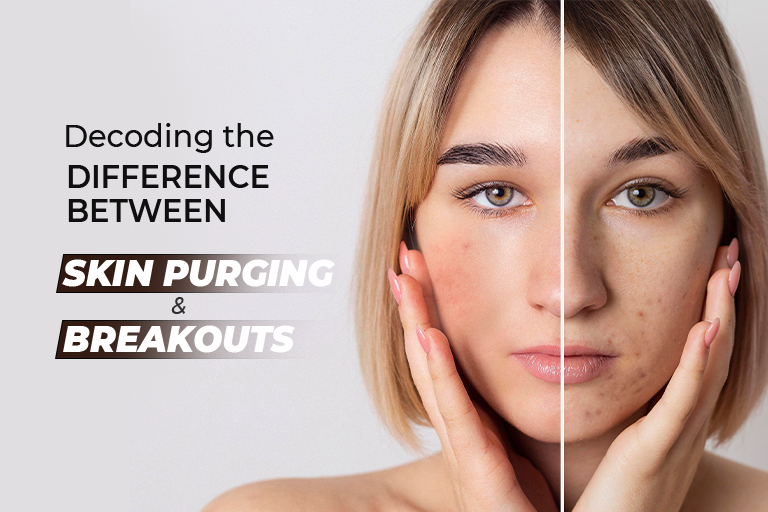
Unveiling The Synonymous Relationship Between Skin and Stress
Stress is an inescapable part of modern life, impacting our physical and mental well-being in various ways. While we often associate stress with its psychological effects, it is essential to recognize its profound influence on our physical health, particularly on the largest organ of our body: the skin.
The Skin as a Reflection of Our Emotional State:

Our skin serves as a mirror, reflecting not only our physical health but also our emotional well-being. It is well-known that stress can manifest itself on the skin's surface in the form of various dermatological conditions. Acne, eczema, psoriasis, and hives are just a few examples of skin disorders that can be triggered or exacerbated by stress. When we experience stress, our body releases stress hormones like cortisol, which can disrupt the delicate balance of our skin, leading to inflammation, increased oil production, and impaired healing processes.
The Mind-Body Connection:
The connection between our mind and body is intricate and interwoven. Stress can influence our skin through the mind-body connection, whereby psychological factors affect our physical well-being. Studies have shown that chronic stress can weaken the skin's barrier function, making it more susceptible to irritants and allergens. Additionally, stress can hinder the skin's ability to retain moisture, resulting in dryness, redness, and a dull complexion. The bidirectional relationship between our mental state and skin health highlights how stress and skin are undeniably intertwined.
The Vicious Cycle:

Stress can initiate a vicious cycle that perpetuates skin issues. When we experience skin problems due to stress, it can lead to feelings of self-consciousness, low self-esteem, and anxiety, which in turn contribute to more stress. This cycle can be challenging to break without addressing the underlying stressors and implementing effective stress management techniques. Recognizing this cycle is crucial for adopting a holistic approach to skin care and overall well-being.
Coping Mechanisms and Skin Care:

Acknowledging the synonymous nature of skin and stress allows us to approach skin care in a more comprehensive manner. While topical treatments and skincare routines are essential, it is equally vital to develop healthy coping mechanisms to manage stress effectively. Engaging in stress-reducing activities such as exercise, mindfulness practices, adequate sleep, and maintaining a balanced diet can positively impact both our mental state and our skin's health.
Seeking Professional Help:

In severe cases where stress-related skin conditions persist or significantly impact our quality of life, seeking professional help is crucial. Dermatologists and mental health professionals can work collaboratively to address both the dermatological aspects and the underlying stressors. Combining medical treatments, therapy, and stress management techniques can provide a multidimensional approach to restore skin health and overall well-being.

Skin and stress share a unique and intricate relationship that extends beyond the surface. Understanding the synonymous nature of skin and stress empowers us to adopt a holistic approach to skin care, recognizing that our emotional well-being significantly influences our skin's health. By managing stress effectively, we can not only nurture our mental state but also promote a radiant and healthy complexion. So, let's prioritize stress reduction and self-care, embracing the transformative power of a balanced mind and glowing skin.


